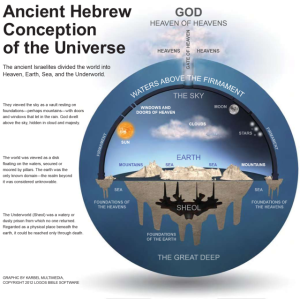I am a Christian. I am not ashamed in admitting my faith.
I just feel at odds with some of my Christian friends. It may be my upbringing. I always feel that believing in Christ should involve one’s emotion as well intellectual rationale. When the emotional aspects collide with the rational evidences, I would try hard to side with the scientific and logical evidences.
On the emotion side, I need to focus our thoughts on a supreme being who can love and comfort me in times of need. I can ask Him to answer our prayers, forgive my sins, and worship Him through my emotional connection.
On the intellectual side, I believe there is the law of physics (chemistry, biology and other sciences), which the universe has to obey.
These are some of my cognitive understanding of God.
I believe apart from a few miracles that God or Jesus performed; God uses established laws of physics to make Him known.
“For since the creation of the world God’s invisible qualities—his eternal power and divine nature—have been clearly seen, being understood from what has been made, so that people are without excuse.”[1]
I believe God made Himself known though the universe He created. When I say “the universe”, I include all the natural laws that govern the universe.
God is consistent. God will not create something look like a square but in fact it is a circle to confuse us.
“God does not play dice with the universe.” – Albert Einstein
I went to a workshop of leading Bible Study groups last evening. The leader used Genesis 1 and 2 as examples of how to read the Bible “correctly”.
The workshop leader is no doubt a Fundamentalist. In the first five minutes of a three-hour discussion, he concluded a “day” in Genesis 1:2 meant a 24-hour day. Of course, he used some “proof-text” from other part of the Bible to form his argument. I honestly do respect such a person is so dedicated to their belief. He belief causes his emotion to supersede any intellectual reasoning.
First, he omitted the historical context. The stories were told though oral tradition before they became a written record. Even I believe the Bible is God-breathed, I am not the original audience of the storyteller. In order to appreciate the origin intent of the storyteller, I have to know the historical context of the story.
Second, he omitted the linguistic context. The Old Testament was written in Hebrew. He was using an English translation. No matter how careful and accurate of the translator, the Hebrew used in the Old Testament was over three thousand years old. The meaning of same Hebrew word used today could significantly differ from the word used three thousand years ago. How can one fully identify the full and true meaning of a passage with such time gap?
Third, most importantly, he omitted the cultural mindset of ancient Jewish literature. The ancient Hebrew cosmology, the earth is flat. The sky is a firmament, which has another layer of water above it. God, heavens and angels reside above the water.
I can list more reasons why I cannot accept a young universe of less than ten thousand years old. I may post them later.
What are the problems of such interpretation? I can think of plenty. That is for another day.
[1] Romans 1:20

